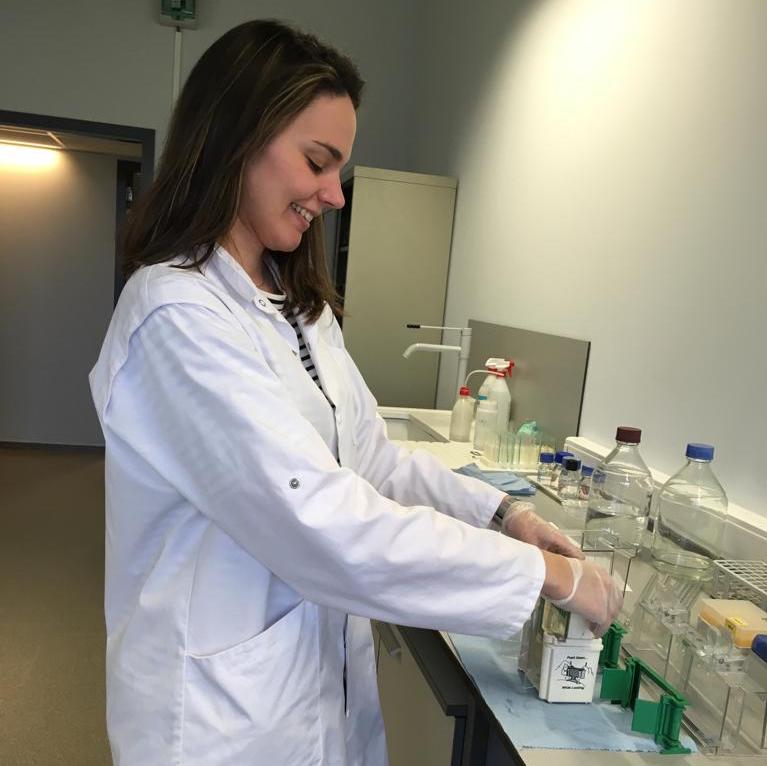
During her PhD research in Biomedical Sciences, Emilie Logie aimed to find new treatment options to overcome therapy resistance in the blood cancer multiple myeloma. Together with Professor Wim Vanden Berghe, her supervisor at the Proteinchemistry, Proteomics and Epigenetic Signalling (PPES) lab, Emilie used and combined different molecular techniques to identify new ways for treating therapy-resistant multiple myeloma cancers.
Every year, over 22,000 people are diagnosed with multiple myeloma. In this type of cancer, malignant plasma cells accumulate uncontrollably within the bone marrow and cause devastating – and often fatal – symptoms. Although several therapies exist today that can improve the quality of life and survival rate of multiple myeloma patients, the cancer cells frequently become resistant to therapy, thus rendering the disease incurable. Therefore, there is an unmet need to find new therapeutic strategies to eliminate resistant myeloma cancer cells.
The past four years, Emilie’s PhD project has focused on two major research questions:
- Can compounds that induce ferroptosis, an iron-dependent form of cell death, be used to kill multiple myeloma cells? If so, how do they affect the myeloma cells on a molecular level?
- Can natural compounds, such as Withaferin A, kill therapy-resistant multiple myeloma cells?
Withaferin A is a natural product isolated from the medicinal plant Withania somnifera, an important ingredient in Indian Ayurvedic medicine, and has been widely studied for its anti-inflammatory properties.
Emilie’s research revealed that both types of compounds hold promise in eliminating (resistant) multiple myeloma cells. Moreover, both Withaferin A and ferroptosis inducing agents can reprogram multiple myeloma cells by interfering with their intracellular kinase signaling network and by altering the epigenome of the myeloma cancer cells. This ultimately leads to alterations in gene expression and increased myeloma cell death. Further research in the PPES lab is now focusing on further characterizing these Withaferin A- and ferroptosis-dependent responses in different disease models of multiple myeloma. Hopefully, this can bring us one step closer toward an effective treatment for multiple myeloma.
Emilie recently successfully defended her PhD research at UAntwerp and she will now start a new journey in the Life Sciences sector as a Trainee Patent Attorney at NLO. With this new challenging job, she hopes to further contribute to the development of novel pharmaceutical therapies and biotechnological innovations that can offer solutions to pressing healthcare issues.
Interested in learning more about Emilie’s PhD research? Then scan the QR code below to read about her main findings!

Article written by Emilie Logie. Edited by Dr. Bronwen Martin.
